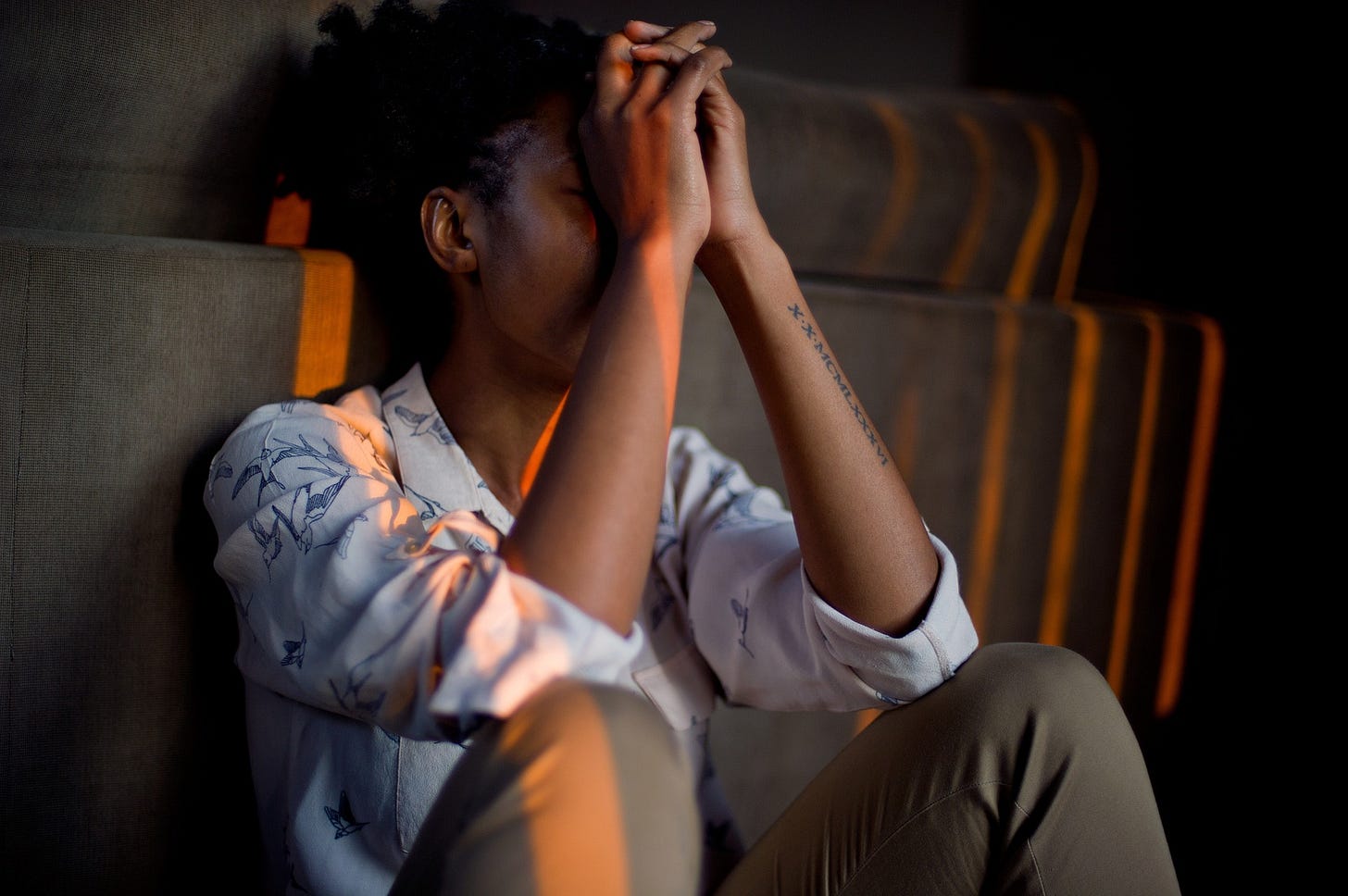Special report: The domestic abuse victims ‘let down’ by Northants Police
We speak to women living in fear of their ex partners who say Northants Police is not doing enough to protect them
By Natalie Bloomer
To support our independent journalism please upgrade your subscription today to receive original news and features straight to your inbox five days a week
When Emma*, 28, left her abusive partner in 2017 she hoped it would be the start of a new and happier life. She didn’t realise it would mark the beginning of a terrifying series of events which led to her fleeing to a women’s refuge, her son being left traumatised and an ongoing process with Northamptonshire Police which she says has made the whole situation that much harder.
Emma’s relationship with her former partner had always been controlling, he didn’t like her to go out and would become aggressive during arguments. He would call her offensive names, smash things and punch doors. This escalated over time and there were various incidents when he slapped her face, pushed her onto the floor or threatened her.
Eventually she found the strength to leave but this didn’t stop the abuse. He would frequently call her and send her abusive text messages. In 2019 while visiting her house to see their children he stole her key and had a copy cut - something she only discovered when she woke up to him standing at the bottom of her bed.
“I woke up and he was standing there touching himself while I slept,” Emma told NN Journal.
“I threatened to call the police so he left but things like that were becoming more common. He’d turn up outside the house late at night and say he wanted to see the kids, even though he knew they’d be asleep.
“When he came to collect the children he would often get angry with me and make threats. He’s not English and would say that he was going to take my daughter to his country of birth because he didn’t want her to grow up in England.”
During this time Emma reported the harassment to police but withdrew her statement because her ex told her things would get a lot worse if she proceeded. He promised to leave her alone if she dropped the case.
On average victims will experience 50 incidents of abuse before seeking effective help. According to the domestic abuse organisation Safe Lives there are many reasons for this including being unsure if what is happening is abuse, being afraid of the perpetrator and being scared of the consequences of telling someone.
Emma’s ex didn’t keep his promise and his behaviour continued to escalate. During the summer of 2020 he attempted to drive her off the road.
“I was in the car with a man when it happened. I called the police and said ‘he is trying to kill me’. They said to drive to the nearest police station but when he realised that was where we were heading he drove off.”
He was arrested in relation to harassing Emma and put on bail. The bail conditions stipulated that he couldn’t contact or go near her. As soon as the bail conditions expired he began continuously calling her again and turning up where she was. A mechanic later discovered a tracking device had been put on her car.
Shortly before last Christmas, Emma was contacted by somebody warning her that he was planning an acid attack against her. This is something he had often threatened during their relationship but now she believed he might actually go through with it.
“He used to say to me if I ever left him he would use acid, he said he would remove my face so nobody else would want me. So when I was told he was planning an attack I was terrified. I walked into a police station and begged them to help me.”
He was again arrested and Emma and her children were placed in a women’s refuge - somewhere they are still living now, almost a year later.
Again he stayed away while under bail conditions but Emma knew he would be back once they expired so this time she applied for a non-molestation order. She did everything in her power to keep herself and her children safe.
But then came the devastating news that the CPS were not going to charge him due to ‘evidential difficulties including witnesses declining to provide statements’.
Since then he has continued to break the non-molestation order, turning up outside her work and sending her messages through various social media sites. The most recent incident was in September.
“I reported it to the police and have still not heard anything back, that’s over a month I’ve been waiting and they haven’t even called me. My treatment by Northants Police has been awful, I haven’t felt supported at all. I called them three times in a week and heard nothing back.”
Two years ago in its most recent inspection of the Northants Police, Her Majesty’s Inspectorate of Constabulary and Fire Rescue Services (HMICFRS) criticised the force for how it investigates domestic abuse crimes and how it safeguards victims.
It said: “The force needs to improve how it responds to domestic abuse incidents and safeguarding victims. Response officers carry out immediate safeguarding of high-risk domestic abuse victims. But the approach to long-term safeguarding is inconsistent, particularly around standard- and medium-risk incidents, and other non-domestic vulnerability cases.”
It concluded: “This means that domestic abuse victims, including some high-risk victims, aren’t getting the standard of service they need.”
The force has posted a series of posts on Twitter in recent months about successful prosecutions against perpetrators of violence against women. In one they said:
“Love should lift you up and make you feel safe and happy. It shouldn't make you feel anxious, fearful and controlled. If you are suffering in a relationship, please come forward. You deserve better. We will believe you.”
Emma says the posts do not reflect how she has been treated by the force and has made a complaint about how they have handled her case.
“They don’t update me on what’s happening and I don’t understand why they don’t have enough to build a case against him. They put all this stuff on social media telling women to report domestic abuse and that they’ll be believed and it makes me so mad because that hasn’t been my experience - it’s insulting.”
Emma’s children are still young but her son is old enough to understand what’s been happening. She says he has bad nightmares and flashbacks and tells her that he imagines people coming to tell him that Emma has been hurt and is not coming back.
Northamptonshire Police, which is rated as a force which requires improvement, says Emma’s case was subject to an internal police audit and found to be satisfactory.
In the summer, as part of monthly meetings held by the Northamptonshire police fire and crime commissioner Stephen Mold and the chief of Northants Police Nick Adderley, Mold asked Adderley to update him on stalking and harassment cases in the county. Minutes of these meetings are not publicly available so NN Journal asked Mold for more detail. He said:
“There has been a significant increase in the number of offences, partly due to a change in the way the Home Office asked for crimes to be recorded in 2019 and 2020, which now requires separate elements of an offence to be recorded as separate crimes.
“The number of offences has increased by 65.5 per cent in 2020/21, when there were 10,183 stalking and harassment crimes reported, compared to 6,154 crimes in 2018/19. Around half of the incidents were domestic in nature and a very high number overall related to incidents that had happened on social media. Around two in three of the victims in these offences were women...I was reassured that people who report stalking and harassment in Northamptonshire are being taken seriously.”
Amanda
Amanda, 53, was married for seven years. She says her partner was never violent but during lockdown things became strained in their relationship and she asked him for a separation. They each had their own homes as both had been married before so there were no issues about him finding somewhere else to live.
One day while out walking her dog, Amanda’s husband jumped out and attacked her. Although he didn’t use it or threaten to use it, he was carrying a small knife at the time. She called the police and says they initially responded very well. They arrived quickly and arrested him at the scene.
He was placed on bail and told not to contact Amanda. The investigation went on for four months and during that time she says weeks and weeks would pass with no update.
It was finally decided he would be charged with ABH (Actual Bodily Harm) but at that point all his bail conditions were dropped meaning there was nothing to stop Amanda’s husband from contacting her.
“He rang me and said ‘just to let you know I’ve been charged but they’ve dropped my bail conditions’. The police had told him before they told me. I rang them and asked why there were no more conditions and was told they couldn’t explain it.
“I had no protection whatsoever. I was scared and all the police said was ‘if you’re worried call 999’.”
Amanda decided to withdraw her statement.
“I had been prepared to go to court but once this happened I couldn’t. I withdrew my statement because I didn’t feel protected, I felt worthless. They really let me down.”
In the year ending March 2019 1.32m domestic abuse cases were reported to police in England and Wales but of those just 78,624 ended in prosecutions.
Amara
Amara, 34, fled from an abusive relationship with her four children in 2018. Shortly before leaving, she reported to police that her husband had grabbed her by the throat several times in their relationship. This was dealt with by the police as a common assault which has a six month time limit to bring charges. Because these particular incidents occurred longer ago than that, the statutory time limit for criminal proceedings had expired.
Amara is one of many survivors of domestic abuse to face this issue. The BBC recently reported that 13,000 common assault cases were dropped in England and Wales over five years due to the time limit. It is not unusual for victims of abuse to feel unable to come forward straight away, meaning they are then out of time.
When Amara left her husband she was initially housed in emergency accommodation by the local authority but because she had no recourse to public funds at the time due to living in the UK under a spousal visa she was unable to stay at the property. Instead she and her children, including a six month-old baby, began living in hotels.
Then came one evening when they couldn’t find anywhere to stay. They began walking the streets of Northampton town centre, becoming more frightened and distressed. It was at this point that Amara’s eldest daughter called the police for help.
They came out to the family and after speaking to social services decided to return the children to their father. The police took them all to his property and then told Amara that her abusive husband was willing to allow her to stay in the house as well. When she refused, it was suggested she could stay at his friend’s house. As she left, the children were clinging to her begging the police to let them stay with her.
Amara refused to get out of the car when they arrived at her husband’s friend’s house because she feared he would turn up there once the police left. She became more and more upset about leaving her children including a baby she was still breastfeeding. The police then sectioned her under the mental health act and took her to Berrywood psychiatric hospital. The very next morning she was discharged as doctors said she was not mentally unwell.
“I felt rejected and disappointed. After getting out from him there was another horrific level of treatment by the police. I felt isolated and have no confidence in the police anymore. I can boldly say they empowered him to the highest level - he thinks he was right for every bad thing he did to me.”
Her case was taken up by former MP Sally Keeble, who also took the family into her own home to live for a number of months. She complained to the police about Amara’s treatment. They apologised for suggesting she should stay with her husband but said the children were returned to him to ensure their safety overnight and although the children expressed that they did not want to go there a decision from a social worker over-ruled that.
The decision to section her was taken, they said, because the PC attending that night assessed Amara as experiencing “an acute psychological episode” and decided “it was not practicable to consult with a suitably trained health care professional” before doing so.
Keeble also suggested to police that the incidents of strangulation which Amara reported and were treated as common assault could have been treated as a more serious crime such as ABH. Her complaints were not upheld.
A Northamptonshire Police spokeswoman, said:
“All of these cases have been reviewed by a Detective Superintendent in light of this query from the NN Journal and we are satisfied that police action in all three was appropriate.
“Having said that, it is never anyone’s place, including ours, to tell someone how they should feel about anything, and so if these women feel let down by us it is important that we understand why so that we can put in place any learning for the future. We are taking a closer look at the bail conditions for the suspect at the point of charge in Case A (Amanda) and will contact the victim directly regarding this.
“Our rhetoric on social media is not just words – domestic abuse is one of only four matters of priority for the force and our detectives in the Domestic Abuse Team are specially trained officers who have a passion for investigating this crime type and a real interest in reaching the best outcome for victims.
“This is demonstrated by our 90 per cent victim satisfaction rate when it comes to investigating cases of domestic abuse - the highest satisfaction level for any crime type across the Force.
“We are certainly not complacent however and are well aware that more needs to be done to ensure victims are not only listened to, but feel listened to as well. We would welcome conversations with all three of these women in order to do this.”
* All names have been changed to protect the women involved.






